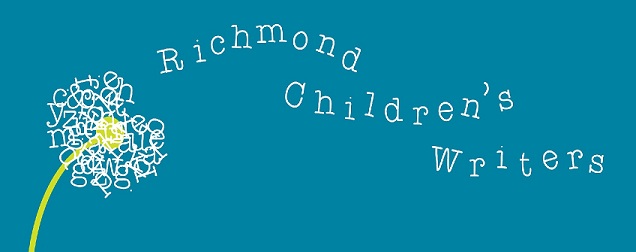All of us at Richmond
Children’s Writers wish you and yours a happy, prosperous and creative 2015!
Lana, Hazel,
Deb, Marianne, Stephanie, Brian, Troy, Dan and Chris

We believe in the indispensable value of good literature in the lives of children. Our mission is to foster the professional development of the creators of children’s literature, promote connections between children’s authors and other members of the literary community, and nurture an environment in which children’s literature can be appreciated by the widest possible audience.
 It goes without
saying, the words you choose, their power, subtlety, variety and nuance will
elevate your writing or drop-kick it into ho-hum, or worse. At our recent
critique meeting, the members of the RCW were reminded that sometimes we don’t
consider seriously enough each and every
word we write. And that can make a big difference to the success of our
writing.
It goes without
saying, the words you choose, their power, subtlety, variety and nuance will
elevate your writing or drop-kick it into ho-hum, or worse. At our recent
critique meeting, the members of the RCW were reminded that sometimes we don’t
consider seriously enough each and every
word we write. And that can make a big difference to the success of our
writing. Brian Rock emceed the event with wit and
enthusiasm. He introduced the finalists for each grade level and also
introduced our fearless leader, Lana Krumwiede, who gave opening remarks.
Brian Rock emceed the event with wit and
enthusiasm. He introduced the finalists for each grade level and also
introduced our fearless leader, Lana Krumwiede, who gave opening remarks.
 Bird Cox, Co-Director of Richmond Young
Writers, presented RYW’s generous donation, a grand prize scholarship to one of
the Richmond Young Writers week-long summer camps.
Bird Cox, Co-Director of Richmond Young
Writers, presented RYW’s generous donation, a grand prize scholarship to one of
the Richmond Young Writers week-long summer camps. Take a bird’s
eye view. Look at the writing as a whole, keeping in mind the overall story arc
while carefully reviewing word choice, pacing and consistency of action. Are
the characters well served by every element in the dialogue, does the story
move exactly at the right speed or does the pacing need to be tightened,
loosened? Does the end follow solidly from the beginning?
Take a bird’s
eye view. Look at the writing as a whole, keeping in mind the overall story arc
while carefully reviewing word choice, pacing and consistency of action. Are
the characters well served by every element in the dialogue, does the story
move exactly at the right speed or does the pacing need to be tightened,
loosened? Does the end follow solidly from the beginning?